This is a list of notable people who have studied at Reigate Grammar School. It is by no means exhaustive; corrections and suggestions for further additions are welcome.
-
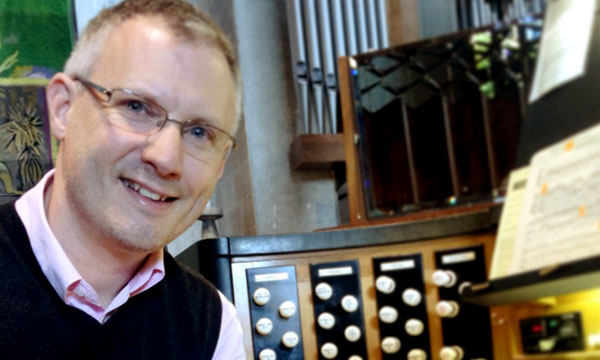
Andrew Cantrill
Organ soloist, choirmaster, singer and conductor, Andrew Cantrill directed choirs in Belfast and Grimsby before moving to Wellington Cathedral, New Zealand as Director of Music. In addition to his work with the cathedral choirs, he broadcast regularly on Radio NZ, both as organ soloist and presenter, and was a regular guest conductor with the New Zealand Symphony Orchestra. After five years in New Zealand, Andrew was appointed Organist-Choirmaster at St Paul’s Cathedral Buffalo, NY, USA, a position he held until his move back to the UK in 2007. He is now Director of Music at Croydon Parish Church. Attended RGS 1981 - 1987.
-
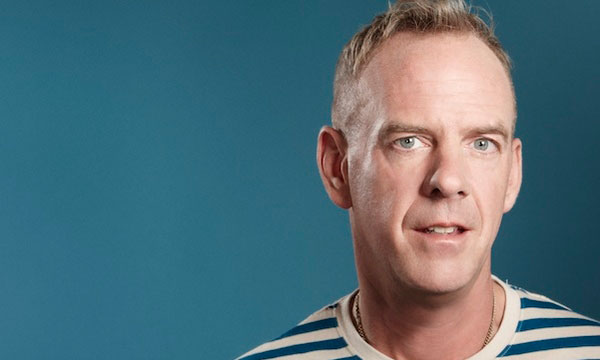
Norman Cook
Norman Cook, also known by his stage name Fatboy Slim, is a British DJ, musician, and record producer. Cook first rose to fame in the 1980s as the bassist of the indie rock band The Housemartins who scored a UK number one single with their capella cover of Isley-Jasper-Isley’s Caravan of Love. After the band split, Cook formed Beats International whose début album spawned their signature hit, Dub Be Good to Me which was another UK number one as well as going on to become the seventh best-selling single of 1990 in the UK. Attended RGS 1974 - 1979.
-
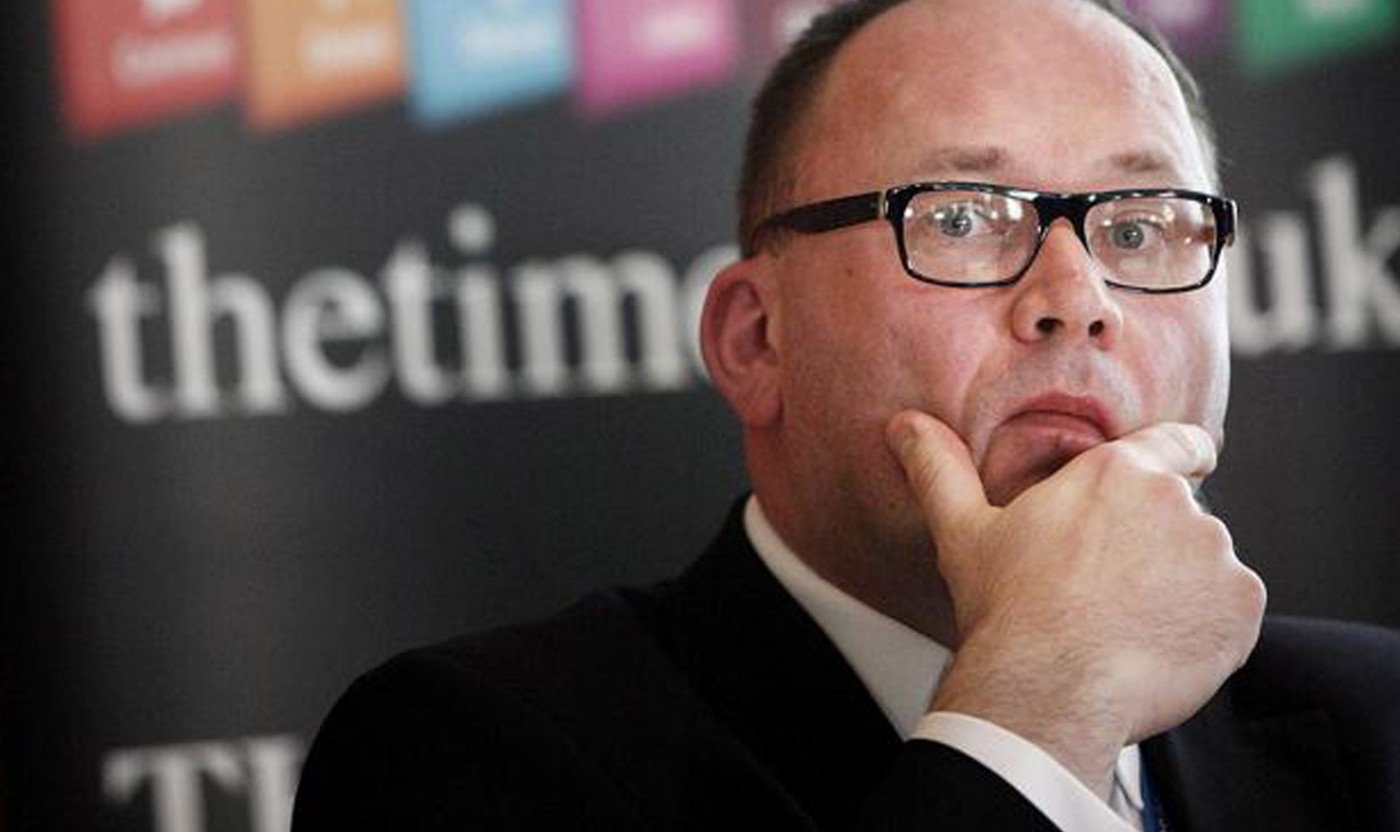
Andrew Cooper, Baron Cooper of Windrush
Andrew is co-founder and strategic director of the research and strategy consultancy Populus Ltd. From March 2011 to October 2013 he served as Director of Political Strategy in the Prime Minster's Office at 10 Downing Street. Attended RGS 1973-1982.
-
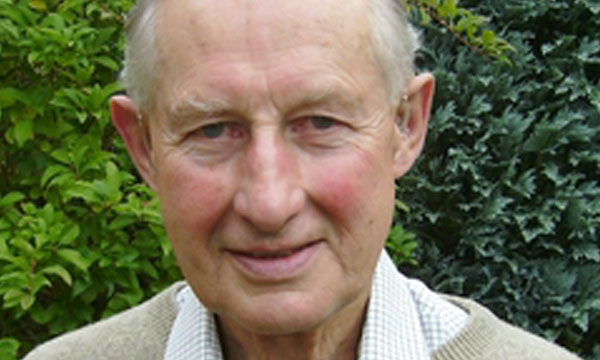
Vice Admiral Sir Geoffrey Dalton KCB
Joined the Royal Navy in 1949. Deputy Supreme Allied Commander Atlantic 1984-87, Secretary General of MENCAP 1987-90 and President of the Royal British Legion from 1993 to 1997, more recently, President of the D-Day and Normandy Fellowship. Vice Chairman of Governors of Queen Mary College, London from 1995-2002. Honorary Colonel 71st (Yeomanry) Signal Regiment from 1998-2001. Attended RGS 1943-1948.
-
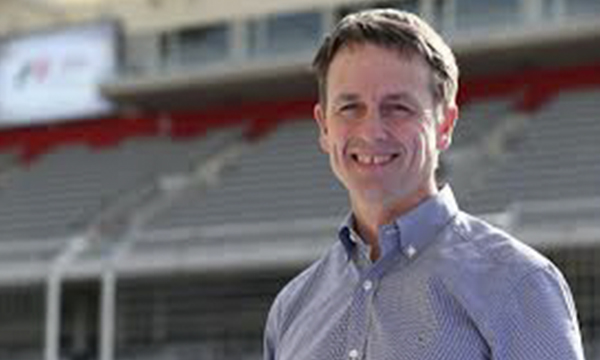
Ben Edwards
The Formula 1 racing commentator, who attended Reigate Grammar School, has voiced television coverage of Formula One, Superleague Formula and the British Touring Car Championship for both the BBC and Channel 4 since 2012.
Before his move to commentator, Edwards was a mechanic for Formula Ford teams in 1982, and had a career as a racing driver.
He won the very first Formula First championship, a now defunct championship for new drivers. Attended RGS 1978-1983.
-
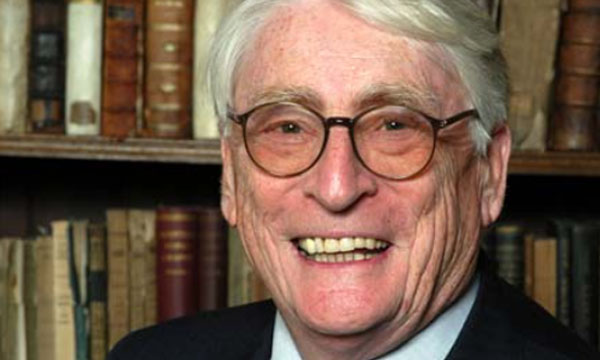
Professor Peter Fookes, FREng, Hon FRGS, Hon DSC (Plym), BSc (Hons), PhD (Eng), DSc (Eng), Ceng, Cgeol, FIMM, FGS
An international consultant engineering geologist widely regarded as the ‘father of modern engineering’ and ‘pre-eminent in the world of engineering geology’, whose principal interests were geomaterials and engineering geomorphology. Attended RGS 1944-1949.
-
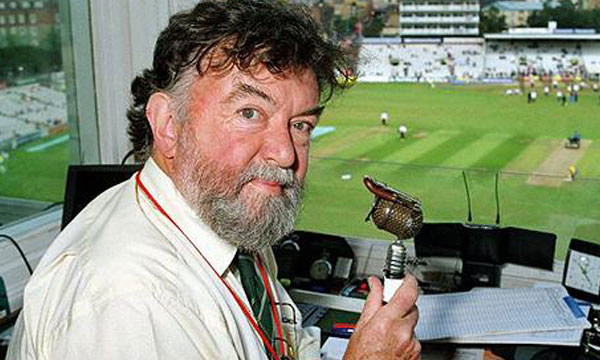
Bill Frindall MBE (1939-2009)
Dubbed ‘The Bearded Wonder’ by the late Brian Johnston, Bill Frindall was the BBC’s scorer and statistician from 1966 and was the longest-serving member of BBC Radio’s Test Match Special commentary team. He scored the first of his 246 home matches on 2 June 1966 when England played West Indies at Old Trafford. He did not miss a single Test in England thereafter. In all he covered 377 Tests, the last of which was on England’s tour of India in 2008. He became a full-time freelance cricket statistician in 1966 after serving in the RAF.
Bill devised his own linear scoring system and edited and compiled many cricketing publications. As a right-handed medium fast bowler and mid-order batsman, he played cricket for Banstead and represented the MCC, Hampshire 2nd XI, the Cricket Society and The Lord’s Taverners. He was President of the BBC Cricket Club from 1998. He was awarded an Honorary Degree of Doctor of Technology for his contribution to the field of statistics by Staffordshire University in 1998. Appointed MBE in the 2004 Queen’s Birthday Honours and Patron of the German Cricket Board in 2005. Attended RGS 1950–1957.
-
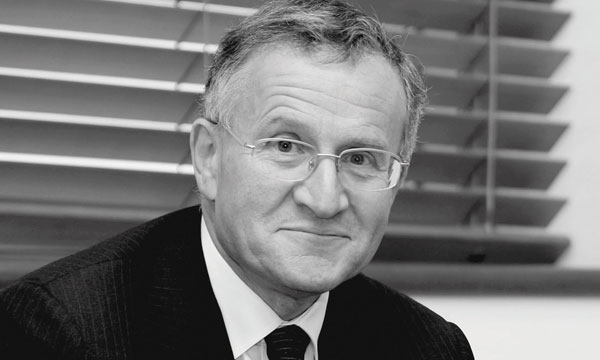
Sir Peter Gershon CBE FREng
Peter’s career has spanned both the private and public sectors since he graduated in Mathematics at Cambridge University in 1969. After starting in the computer industry (1969-1986) he worked in the telecoms industry (1987-1994) and then became a board member of GEC plc from 1994 until the sale of its defence business in 1999 to BAE.
He joined the Civil Service in April 2000 as the first Chief Executive of the Office of Government Commerce (OGC) to lead a major programme to reform the way UK Central Civil Government handles its procurement. In August 2003 the Prime Minister and Chancellor of the Exchequer invited Peter to lead a major review of UK Public Sector efficiency to identify significant resources which could be reallocated in the 2004 Spending Review to front line services over the period 05/06 – 07/08.
After more than 4 years of public service Peter returned to the private sector and was Chairman of Tate & Lyle PLC 2009-2017. In 2008 he undertook an independent review for the Australian Government of its use of Information & Communications Technology. He was appointed as an external member of the UK Government’s Efficiency Board 2010-2015.
He became Chairman of National Grid Plc in 2012. He is also Chairman of the UK Aircraft Carrier and Dreadnought Submarine Alliances and a board member of The Sutton Trust.
He was awarded the CBE in 2000 for services to industry and Knighted in 2004 for his work on public procurement. Attended RGS 1958-1965. Peter is the Honorary President of the Henry Smith Club.
-
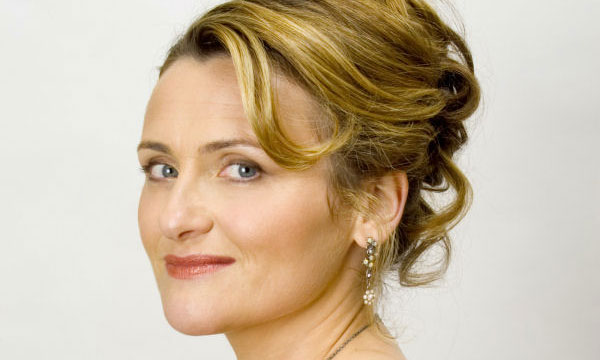
Susan Gritton
One of the country's leading sopranos, Susan appears in concerts, recitals and opera stagings throughout the world. Attended RGS 1981-1983.
-
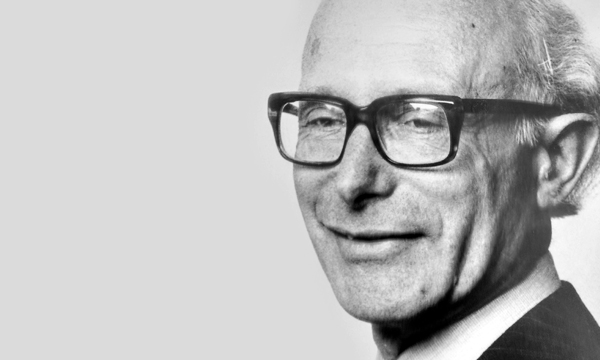
John L Haybittle (1922-2017)
John was a British Medical Physicist.
He served as secretary of the British Institute of Radiology from 1962 to 1967, and was Editor of the British Journal of Radiology from 1981 to 1986.
He was awarded the British Institute of Radiology's Röntgen Prize in 1972 and their Barclay Medal in 1987. In 1967 John was one of the first Cambridge Alumni to be awarded a Doctorate for published research.
He is a co-inventor, with Richard Peto, of the Haybittle–Peto boundary. The Haybittle-Peto boundary is referred to when clinicians decide to stop a successful clinical trial early.
His work with Diana Brinkley on early breast cancer screening and his analysis of the Kings/Cambridge Trial for the treatment of early breast cancer is a model to this day. John was an active member, and then Chairman, of the British Breast Group. Attended RGS 1932-1940.
-
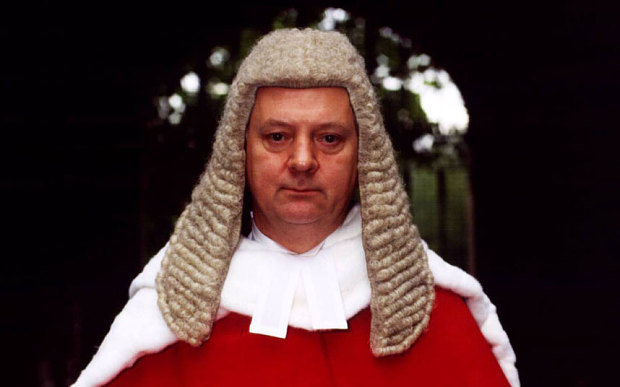
Hon Mr Justice Hidden QC (1936-2016)
Anthony Hidden was a British barrister, Queen's Counsel and later Judge of the Hight Court of Justice 1989-2003, known for chairing the enquiry into the 1988 Clapham Junction rail crash.
Hidden graduated from Emmanuel College, Cambridge in 1957. He served with the Royal Tank Regiment and was called to the bar in 1961. Attended RGS 1945-1954 and Head Boy in 1954. -
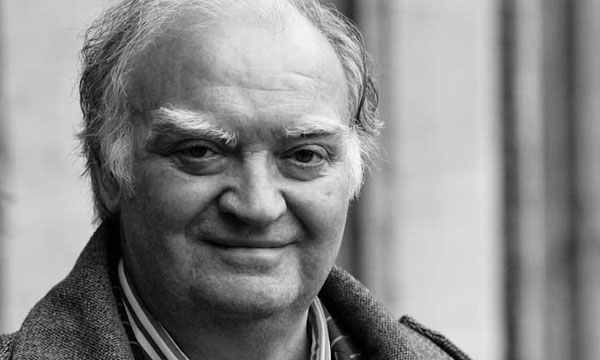
Bevis Hillier
An English art historian, author and journalist. After attending RGS he went to Magdalen College, Oxford where he won the Gladstone Memorial Prize for History. He was employed as a journalist on The Times in 1963. Later he became editor of The Connoisseur, a columnist on the Los Angeles Times and lead reviewer for The Spectator.
His major work, the authorised biography of Sir John Betjeman, was published in three parts in 1988, 2002 and 2004. A one volume abridgement was published in 2006 for Betjeman's centenary. In 2006 he also became infamous as the hoaxer who duped the poet’s latest biographer, A N Wilson, into publishing a spoof love letter. He is also known for his writing on Art Deco. His 1968 book Art Deco of the 20s and 30s revived interest in this period of art. In 1971 he was co-organiser of a major Art Deco show at the Minneapolis Institute of Arts.
He is a Fellow of the Royal Society of Arts and the Royal Society of Literature. Awarded an Honorary Doctorate of Letters by the University of Winchester in 2009. Attended RGS 1951-1959.
-
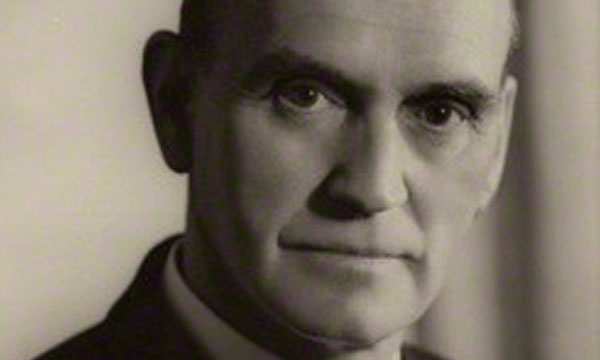
Sir Godfrey Ince
Director General of Manpower during the Second World War. Attended RGS 1903-1910.
-
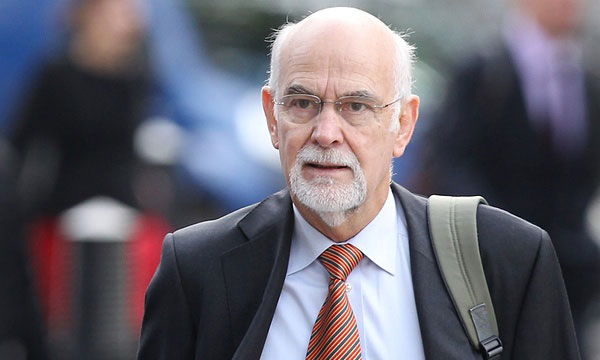
Trevor Kavanagh
Political Editor of The Sun 1983-2005. Reporter of the Year 2005 (British Press Awards). Political Journalist of the Year 2004 (Political Studies Association). Journalist of the Year and Specialist Reporter of the Year at the British Press Awards 1997. Attended RGS 1954-1960.
-
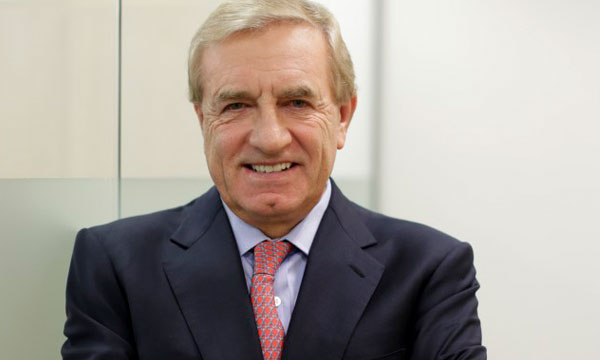
Sir Peter Lampl OBE
Chairman of The Sutton Trust which provides educational opportunities for young people from non-privileged backgrounds. Attended RGS 1959-1964.
Peter Lampl is acknowledged to be the UK’s leading educational philanthropist. In 1997 he founded the Sutton Trust which is dedicated to improving social mobility through education. Peter has given over £50 million to the Trust to achieve this aim.
Peter is also chairman of the Education Endowment Foundation set up in 2011 by the Sutton Trust and funded by £135 million from Government to improve the performance of the poorest children in the most challenging schools.
Peter’s first philanthropic venture was funding the campaign to ban handguns in the wake of the Dunblane massacre. The campaign was enormously successful and resulted in a complete ban.
In 1983 Peter founded the Sutton Company, a Private Equity firm with offices in New York, London and Munich. The firm was highly successful and resulted in Peter becoming one of the 200 wealthiest people in the UK.
-
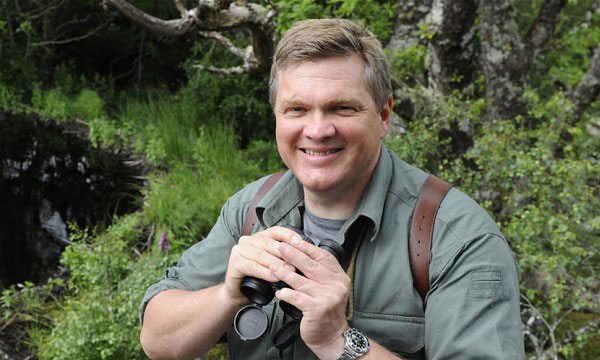
Ray Mears
Survival and wilderness expert and author. Presents numerous BBC television programmes on the subject. Founded Woodlore, School of Wilderness Bushcraft, in 1983. Attended RGS 1977-1982.
-
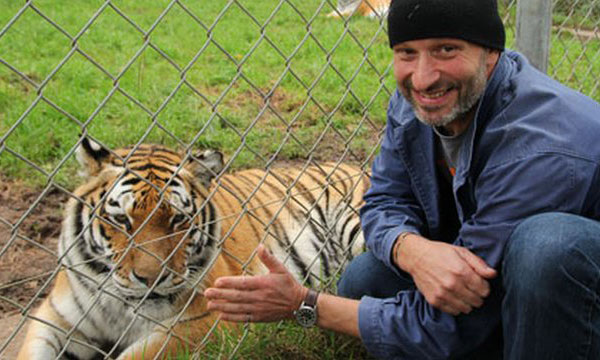
Ben Mee
Ben Mee studied psychology at university before becoming a DIY expert writing a column for The Guardian’s Weekend section. He published a collection of his articles in The Call of DIY: A Toolkit of Practical Wisdom. He moved to France to restore an old barn near Nimes, but in an extraordinary change of life he and his family returned to England to take over a run-down zoo on the edge of Dartmoor. His struggles to turn around the zoo were documented in the BBC television programme Ben’s Zoo. Ben has since written a book We Bought a Zoo. Attended RGS 1977–1980.
-
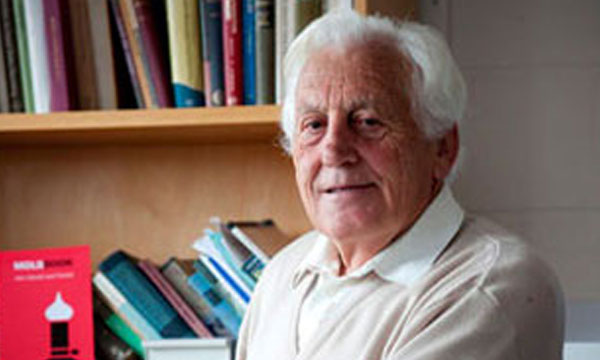
Professor John Murrell BSc, PhD, FRSC, FRS
Studied for his first degree at King's College, London and for PhD at Cambridge. He became Professor of Chemistry at the University of Sussex in 1964. He was elected a Fellow of The Royal Society in 1991. In 1996 he was appointed founding Dean of the new School of Chemistry, Physics and Environmental Science at Sussex. He has an honorary DSc from the University of Coimbra, Portugal. He retired in 1999, although he retains links with the University of Sussex as Emeritus Professor of Chemistry. He has published a wide range of papers in theoretical chemistry and seven books on the subject. Attended RGS 1943-1950.
-
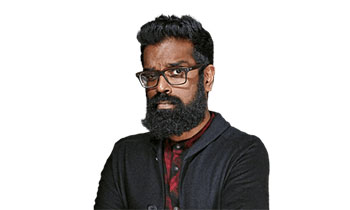
Romesh Ranganathan
A British stand-up comedian and actor. He was nominated for Best Newcomer at the 2013 Edinburgh Comedy Awards. He has made numerous appearances on comedy panel shows, and in 2016 he co-presented It's Not Rocket Science, alongside Rachel Riley and Ben Miller. He is known for his deadpan comedy.
Ranganathan started performing as a comedian whilst working as a mathematics teacher at Hazelwick School in Crawley, and The Beacon School, Banstead, Surrey.
He was formerly a regular panellist on The Apprentice: You're Fired!, Play to the Whistle and The Museum of Curiosity. In 2016, he completed his first major tour, Irrational Live, in which he performed in large venues such as the Hammersmith Apollo. This tour was also released as a DVD. Ranganathan joined A League of Their Own as a regular panellist. In 2018, Ranganathan was the presenter of Judge Romesh, an unscripted show in which he decides the outcome of court cases between a claimant and a defendant. Attended RGS 1990-1992.
-
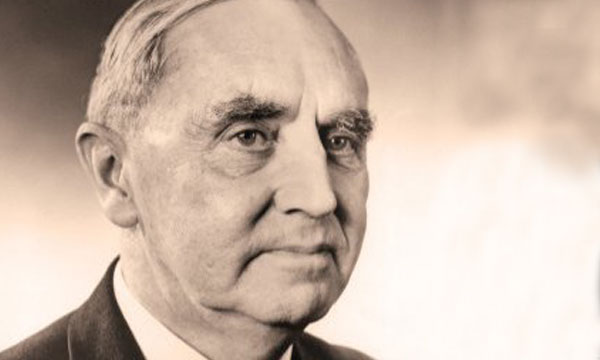
Alec Reeves CBE (1902-1971)
Famous engineer who played a leading role in introducing the digital age of communications. Invented the world's first remote-controlled bombing device which had a profound effect during World War Two. Attended RGS 1914-1918.
-
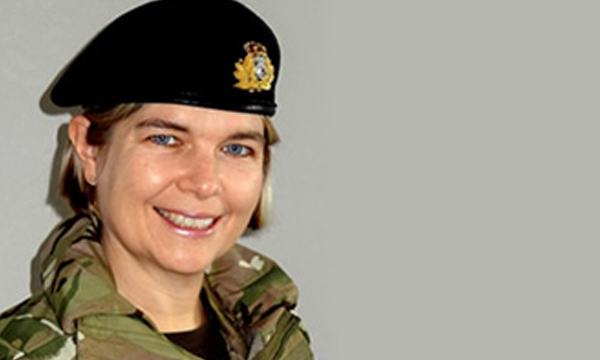
Surgeon Captain Sarah Stapley
Consultant Orthopedic and Trauma Surgeon, Sarah has been part of the Royal Navy since 1987. She has been deployed with the Defence Medical Services to Iraq and Afghanistan on six occasions, in 2011 as Deployed Medical Director with responsibility for clinical leadership and management of the UK Hospital at Camp Bastion. She was awarded the Order of St John for services to the Defence Medical Services and the Queen’s Commendation for Valuable Service. In the civilian world, she has been awarded an American, British and Canadian Travelling Fellowship by the British Orthopeadic Association.
In 2011, Sarah was awarded the Women of the Year award as part of a team of six British women recognised for supporting the medical treatment of injured military personnel from point of wounding to rehabilitation.
Sarah became involved with the training of surgeons as Programme Director of Core Surgery and went on to become a Military Surgery and Trauma Senior Lecturer in Extermity, supporting military and civilian trainees in obtaining Higher Degrees. Attended RGS 1982-1984
-
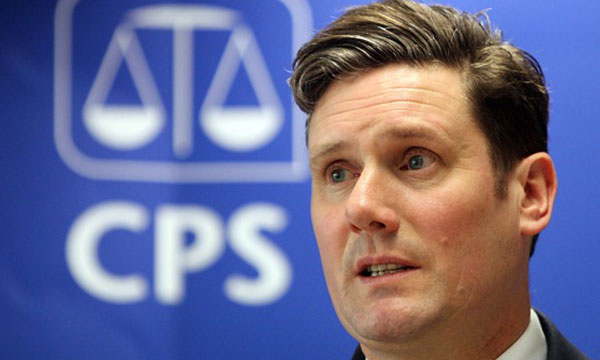
Keir Starmer MP, KCB QC
Keir Starmer KCB QC is a barrister, and British politician serving as Leader of the Labour Party since April 2020. Previously he was the Director of Public Prosecutions (DPP) and the Head of the Crown Prosecution Service (CPS).
He was knighted by the Queen in the 2014 New Year’s Honours List. Regarded as a progressive barrister he was named Human Rights Lawyer of the Year 2000 and 'QC of the Year' in 2007. Appointed as Queen’s Counsel in 2002 and was joint head of his chambers, Doughty Street Chambers. He was sworn of the Privy Council on 19 July 2017. He studied Law at the University of Leeds and graduated with a first class Bachelor of Laws (LLB) degree in 1985. He then undertook postgraduate studies at St Edmund Hall, Oxford and graduated from the University of Oxford with a Bachelor of Civil Law (BCL) degree in 1986. Attended RGS 1974-1981.
-
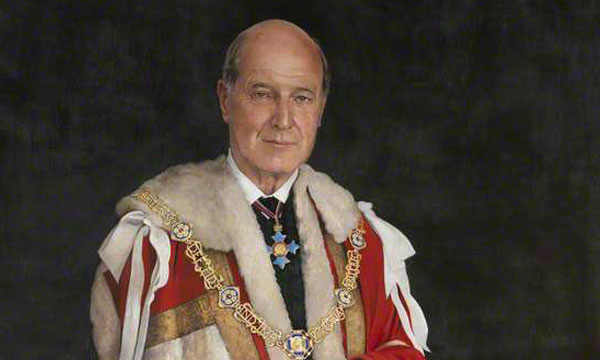
The Lord Sterling of Plaistow GCVO, CBE
Executive chairman of the P&O Steam Navigation Company 1983-2005 and now Life President of P&O Princess Cruises. Joint Founder and current Chairman of Motability. Chairman of the National Maritime Museum. Chairman of the Governors of The Royal Ballet School 1983-1999. Chairman of the Young Vic Company 1975-1983. President of the General Council of British Shipping 1990-1991. President of the European Community Shipowners’ Associations 1992-1994. Knighted in 1985 for public services and services to industry. Created a life peer in December 1990. Awarded Knight Grand Cross of the Royal Victorian Order (GCVO) in 2002. He holds an honorary commission of Vice Admiral in the Royal Naval Reserve. Attended RGS 1945-1949.
-
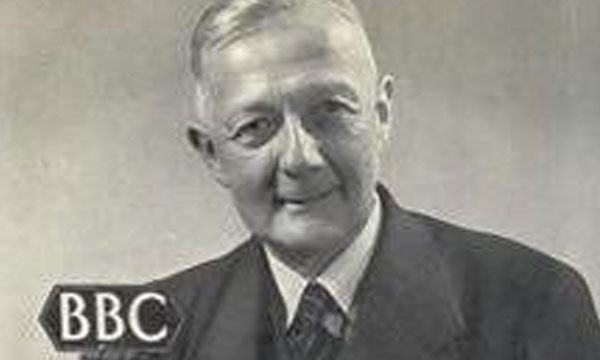
Fred Streeter MBE (1879-1975)
Was an 'extremely promising' pupil at RGS but left school at the age of 12 determined to become a gardener. He subsequently became a famous gardening expert and broadcaster. In 1945, he was awarded the Royal Horticultural Society's Victoria Medal of Honour, its highest award. He appeared as a castaway on the BBC Radio programme Desert Island Discs on 15 July 1957. Attended RGS 1938-1941.
-

Andrew Sullivan
Provocative social and political commentator, author, editor and blogger. A pioneer of the political blog, published in TIME magazine, The Atlantic, The Daily Beast, former columnist for The Sunday Times and former editor at The New Republic.
As an author, he published one of the first major publications to advocate for gay people to be given the right to marry. He lives in Washington, DC.
He attended Magdalen College, Oxford, where he was awarded a first-class Bachelor of Arts in modern history and modern languages. In his second year, he was elected President of the Oxford Union for Trinity term 1983. Sullivan earned a Master of Public Administration in 1986 from the John F. Kennedy School of Government at Harvard University, followed by a Doctor of Philosophy degree in government from Harvard in 1990. Attended RGS 1974-1981.
-
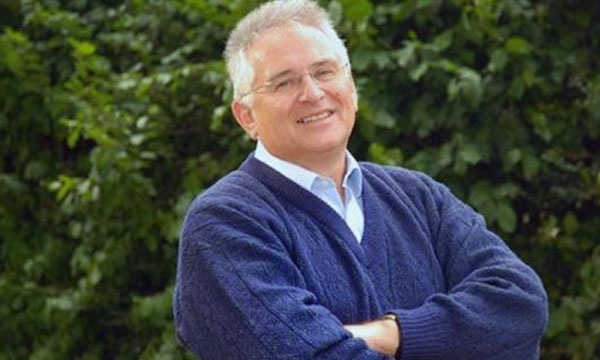
Derek Twine CBE
CEO of the Scout Association from 1997-2013, He is chair of Bradford Cathedral Council, Vice-Chair of Church Urban Fund (CUF) and a National Trust Council member.
During his tenure, the Scout Association was led to growth in youth membership, adult volunteering, financial stability and social profile and community impact. He has chaired panels for the National Youth Agency, the National Council for Youth Services and the Association of Chief Executives. He gives evidence to Parliamentary Enquiries, and represents the sector in the media.
Derek is a Fellow of the Royal Society for the Arts. He is a Freeman of the City of London, and in 2007 was appointed CBE for services to young people. Attended RGS 1962-1970.
-
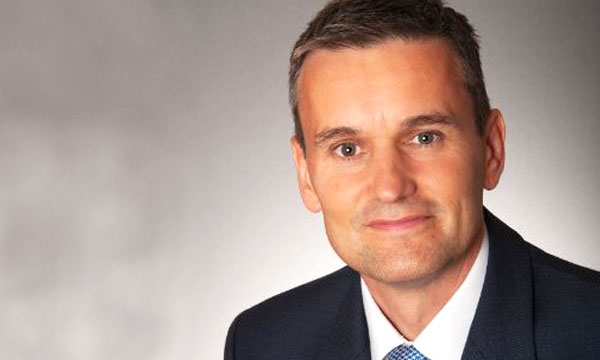
Simon Virley CB
Former Director General, Energy, Department of Energy and Climate Change. Previously Chief Executive, Office for Renewable Energy Deployment, Acting Director General at the Department of Energy and Climate Change (January to July 2009). Director, Renewable Energy, Department for Business (2008-2009); Director, Corporate Finance, KPMG (2005-08); Director, Better Regulation Executive, Cabinet Office (2003-05); Private Secretary to Prime Minister, Tony Blair (2000-03). Trained as an economist (Oxford and LSE), he spent most of his early career in the Treasury, including leading the Treasury's work on 'green' taxes, and the first ever National Minimum Wage. He has a number of published articles to his name. He now lives with his wife Kate, and two sons, Max and Leo, in Kingston. Simon currently works for KPMG as a Partner to support the firm's Energy practice in the UK. He was awarded a CB in 2014 for his work on UK energy supply and energy security services. Attended RGS 1980-1987.
-

David Walliams OBE
Actor, writer, comedian, talent-show judge, author, presenter and BAFTA winner for comedy series Little Britain. Walliams is also a writer of children's books. To date he has sold more than 12.5 million copies and his books have been translated into 46 languages. He has been described as "the fastest growing children's author in the UK.
David revisited the school in 2005 with his co-star Matt Lucas to talk to the pupils about his work in comedy and again in 2012 for 'an evening with David Walliams'. Attended RGS 1981-1989. -
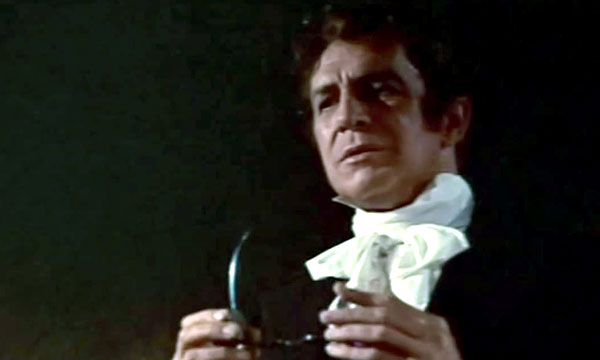
John Westbrook (1922-1989)
John Westbrook worked mainly in theatre and in radio but also made film and television appearances. His most famous role was as Christopher Gough in Roger Corman's The Tomb of Ligeia. He was noted for his deep, mellifluous voice. He recorded radio plays and audio books, performed in a great many Shakespeare plays, and was involved with many works with a religious theme.
-
Professor Chris Wise
Engineer, academic and broadcaster. Wise began his career with Ove Arup and Partners in 1979. After working in UK, Australia and US, he became Arup’s youngest Director in 1992, and later became one of five Board Directors responsible for Building Engineering’s 500 engineers and support staff. In 1999 he left Arup and co-founded Expedition Engineering together with Seán Walsh.
Chris was the first Professor of Creative Design at Imperial College. He has worked closely with leading architects on award-winning projects throughout the world twice winning the Construction Industry Building of the Year award, and also the RIBA Stirling Prize for Architecture. A Fellow of the Royal Academy of Engineering he was awarded the academy's highest individual honour, the Silver Medal in 2007. Currently a Trustee of the Design Council and a Fellow of the Institution of Civil Engineers. Attended RGS 1968-1976.
-
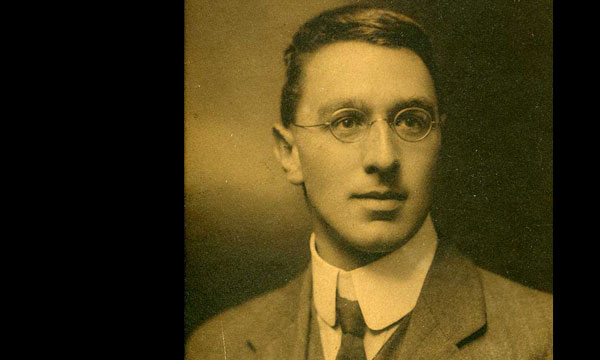
Major General Philip Henry Mitchiner
An academic surgeon at St Thomas' Hospital, London, Mitchiner had extensive civilian experience, as well as being a military surgeon, serving in the United Kingdom, the Middle East and Eastern Europe. In 1916 Mitchiner was deployed to Serbia, where he distinguished himself, not just as a surgeon, but also in aspects of Army health, command and administration.
For a time, Mitchiner was Honorary Surgeon to the Queen (1952). Other appointments included: Major General of the Army Medical Service (Territorial Army); Consulting Surgeon Middle East Force; Member of Senate, University of London (Deputy Vice-Chancellor, 1951-1953); Member of Council (Vice-President, 1950-1952), Royal College of Surgeons. He was awarded a CBE in 1938. Mitchiner wrote or co-authored numerous medical papers recording everything from instruments for operations to carcinoma of the breast. Several images of Mitchiner hang in the National Portrait Gallery. Attended RGS 1902-1906. -
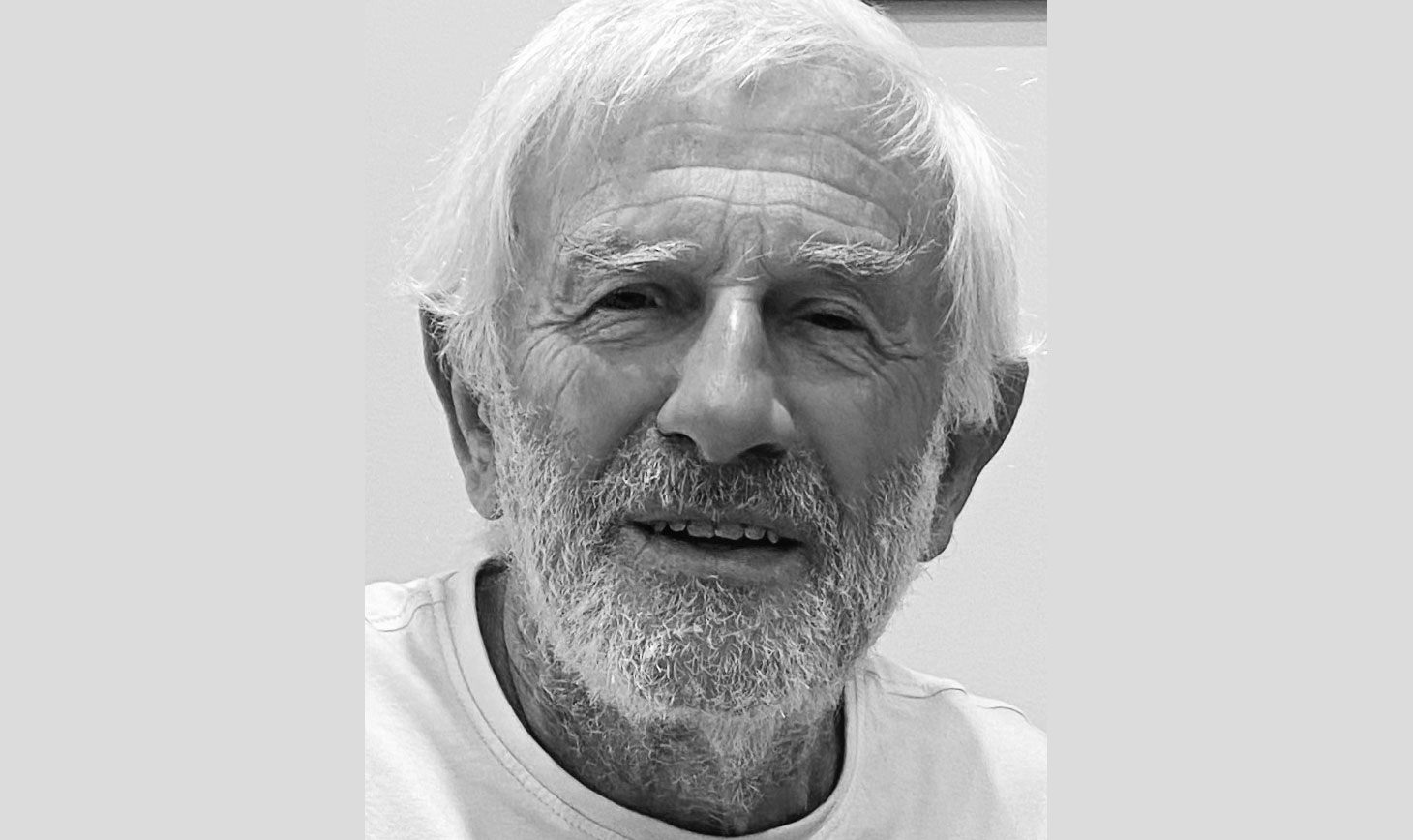
Professor Sir David Hall
Professor Sir David Hall (RGS 1956-1963) is recognised nationally and internationally for his work on community child health. He is Emeritus Professor of Community Paediatrics at the University of Sheffield and Hon. Professor of Paediatrics at the University of Cape Town and Red Cross Children’s Hospital. Having studied medicine at the University of London, David graduated with a Gold Medal award. He did his paediatric training in Canada, Johannesburg and London. From 1978-93, he was a consultant at St George's Hospital, London, after which he joined Sheffield University as Professor of Community Paediatrics, until his retirement. He was President of the Royal College of Paediatrics and Child Health in 2000-2003 and advised the Department of Health on a variety of topics including SureStart, Child Protection, MMR and autism. He supported many NGOs including AFASIC, Contact-A-Family and the Spastics Society of India. Since 2006, David, and his wife Sue, have lived near Cape Town, where they have assisted colleagues at the university in the development of a Postgraduate Diploma and, as members of a Rotary club, they work on a number of local child health and literacy projects. They have two daughters and two granddaughters.
-
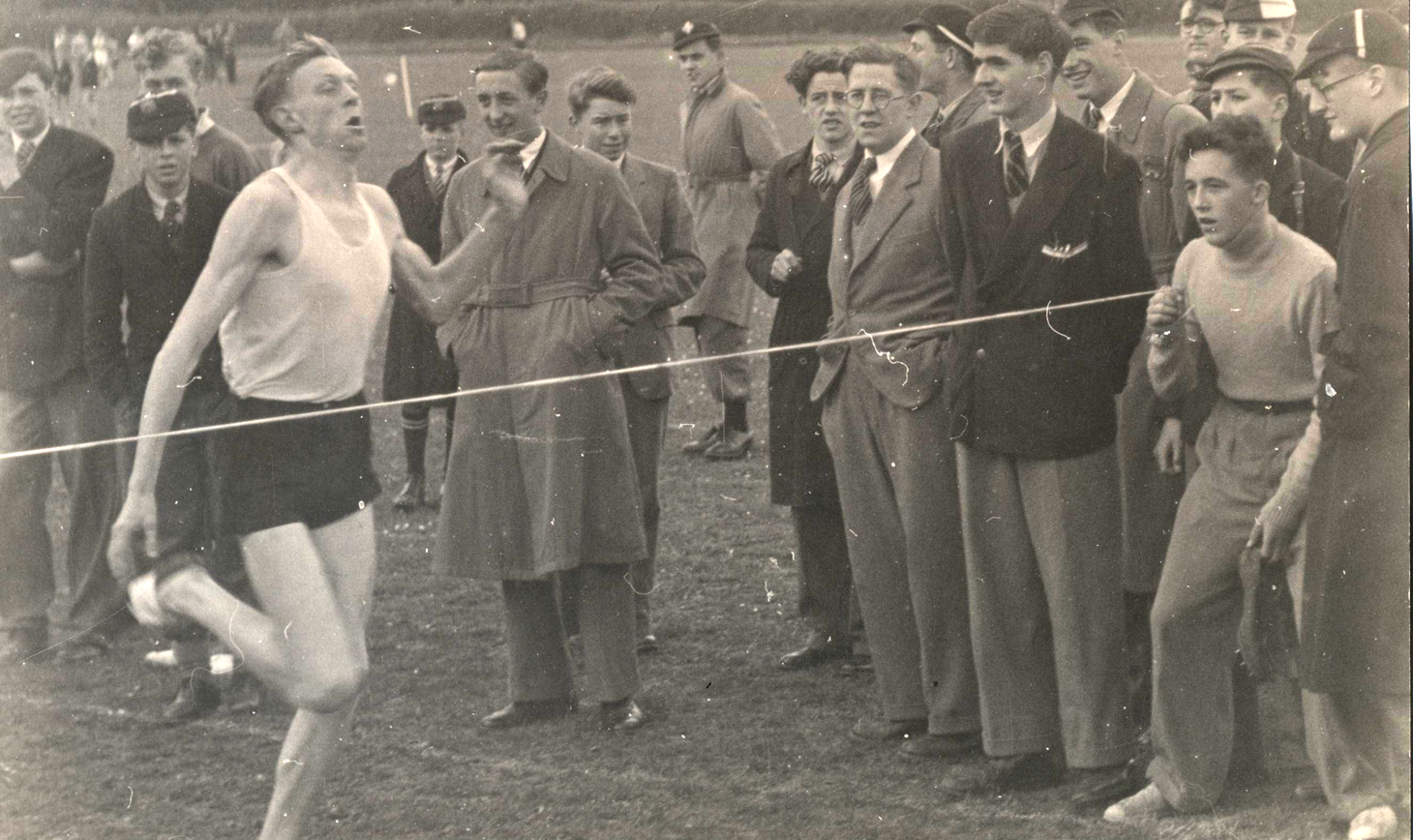
Laurie Reed
Laurie Reed’s love of athletics began at Reigate Grammar School, where he held the school's record for the mile and was runner-up for the All England School's Mile Championship.
In 1957, Laurie began his international athletics career. Just a few days after his 21st birthday he won the 3,000 metres race at his first overseas competition in France. Over the next three years he competed several times in France, Poland, Sweden, Germany and Italy, but his career was often blighted by injury.
In 1960, Laurie was invited to represent Great Britain and Ireland in the 1,500 race at the Olympics in Rome. Most of the Olympic team was disappointed not to be sent to Rome earlier due to insufficient funds and, subsequently, were not acclimatised to the exceptional heat. Even though he did not win a medal, he considered it a great honour to have participated.
A couple of weeks after the Olympics, Laurie beat Herb Elliott – the winner of the 1,500 metres in Rome – in a cross-country race on Farthing Downs. Later in life, Laurie ran three London Marathons in succession and on the last one, a month before his 50th birthday, he completed it in 2 hours 46.49 secs. Attended RGS 1948-1953.
